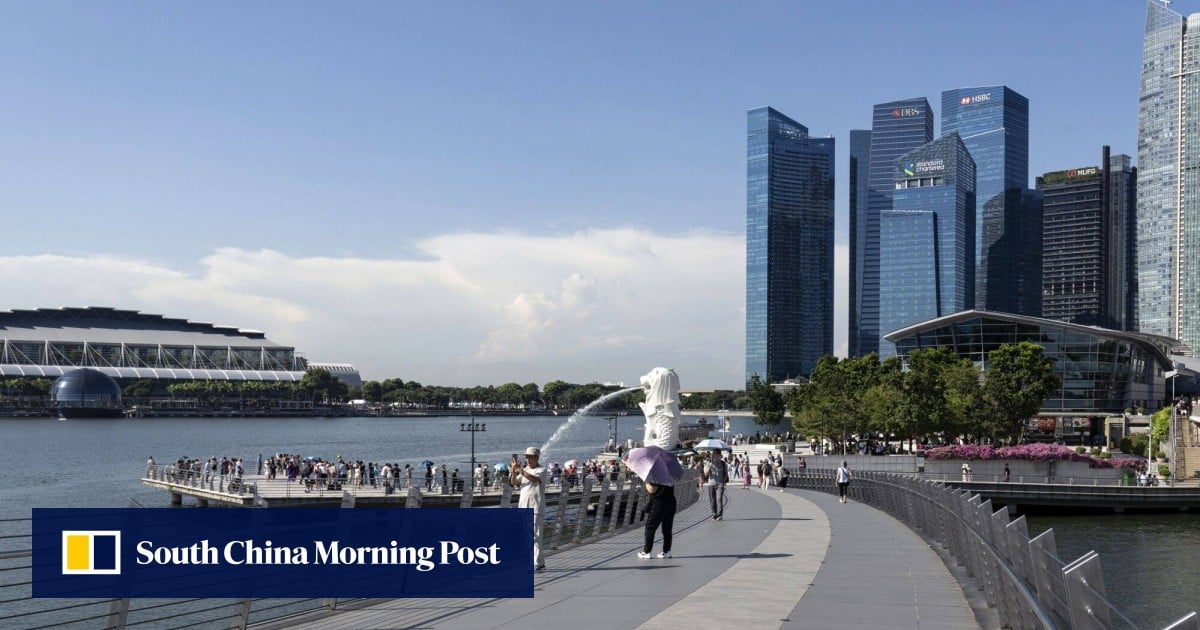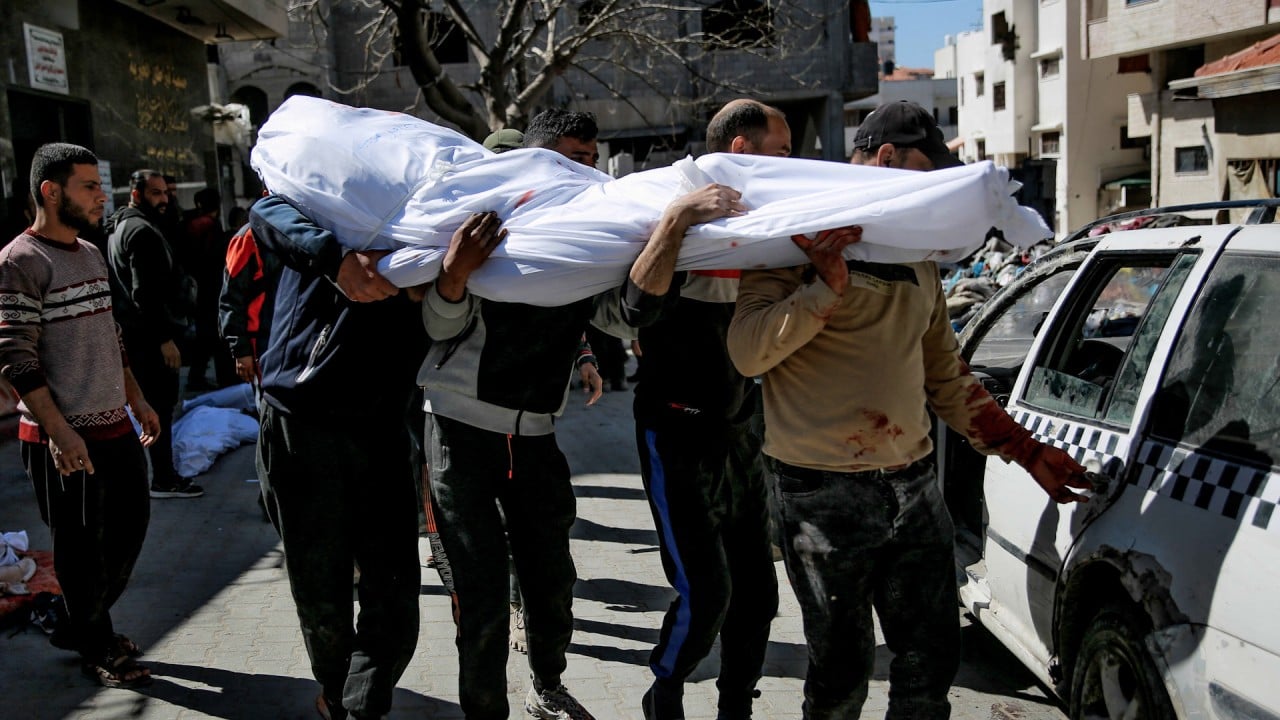Speaking to local media outlets on Monday, Law and Home Affairs Minister K Shanmugam, noting the student’s case, said: “Many of us sympathise with the Palestinian cause. I sympathise with the Palestinian cause. They should have their own country and not suffer like this.
“But sympathy for any foreign cause cannot mean we can support or allow terrorism. Action was taken against a young boy and An’nadya, not because they supported Palestine … action was taken against the two of them because of their support for armed violence.
“And in the case of the young boy, because also that he was prepared to engage in armed violence himself.”
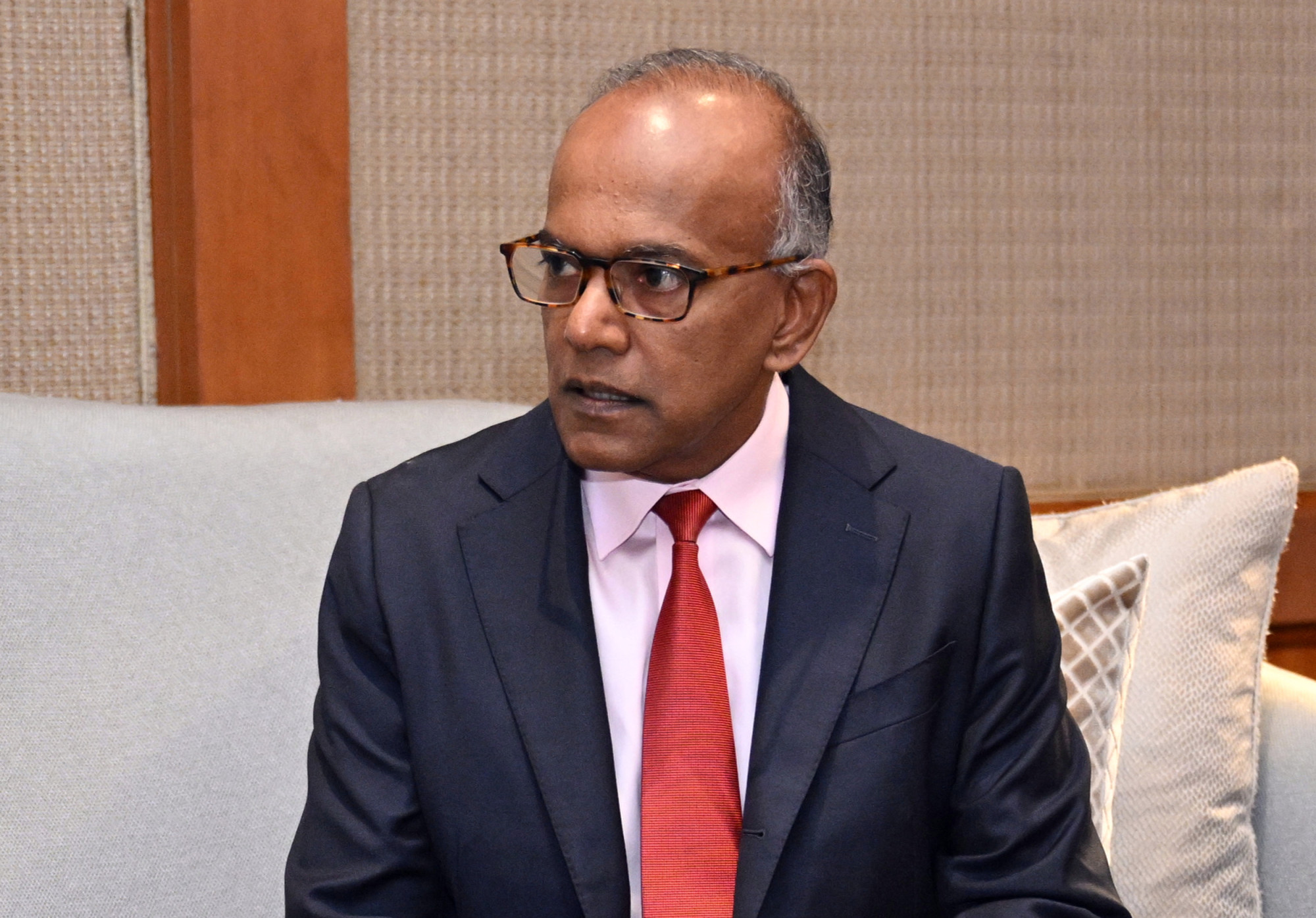
Shashi Jayakumar, founder of security consultancy, SJKGeostrategic Advisory, told This Week in Asia: “While a great deal is not known about the radicalisation journeys of the 14-year-old and the 33-year-old, it is striking that the youth’s radicalisation journey occurred only over a few months.
“The timeline for radicalisation in this internet or social media-inflected age has become shorter – which is something seen elsewhere, including in the West.”
The teen made plans to fight for the Black Flag Army (BFA), a prophesied Muslim army that is to engage in a final battle with non-believers, according to the ISD.
The department added he had saved up money through part-time work to fund his travel to Afghanistan and remained committed to his cause even when family members tried to dissuade him.
He had tried, though unsuccessfully, to radicalise several schoolmates and sought to recruit them to fight with him alongside the BFA as well as carry out attacks in the city state, the ISD added.
The teen also created an online chat group, inviting six of his schoolmates to join, and hoped to recruit 60 to 100 people, so that he could conduct attacks on non-Muslim communities during their festive seasons such as Lunar New Year, Christmas and Deepavali.
“He hoped such attacks would instil fear amongst non-Muslims, to deter them from such ‘un-Islamic’ festivities, and facilitate the establishment of an Islamic state in Singapore,” the ISD said.
Singapore’s 5.9 million-strong population comprises around 74 per cent Chinese, 13 per cent Malays and 9 per cent Indians, with strict laws governing race relations.
Meanwhile, An’nadya first raised alarm bells in 2021 after she made social media posts which “had the potential to incite social disharmony”, said the ISD, but was later advised to remove her posts.
Earlier in April, she came to the attention of the authorities for her online activities, which included threats to attack and kill Israelis before joining several groups supporting the Axis of Resistance (AOR), a network of Islamist militant and terrorist organisations such as Hamas, the ISD said.
She eventually joined a social media channel intended to spread awareness and garner support for the AOR’s military operations, where she was made an administrator. She had also attempted to recruit family members and friends to join the channel, though she was unsuccessful.
The ISD stressed the two cases highlighted how conflicts abroad could “continue to have an impact on Singapore’s domestic threat landscape”.
“It is thus critical that we not allow extremist narratives surrounding external developments to take root in our society, even as we continue to be deeply and rightly concerned with the situation in Gaza.”
Noor Huda Ismail, a visiting fellow at the S. Rajaratnam School of International Studies, said: “Supporters of the pro-Palestinian cause may feel that the incident unfairly stigmatises their movement and paints all supporters with the same brush of extremism.”
He added that the cases could also spark fear of increased surveillance and repression of pro-Palestinian activism. “Broad counter-radicalisation measures could be viewed as targeting specific political viewpoints, leading to backlash from those who feel their freedom of expression is threatened.”
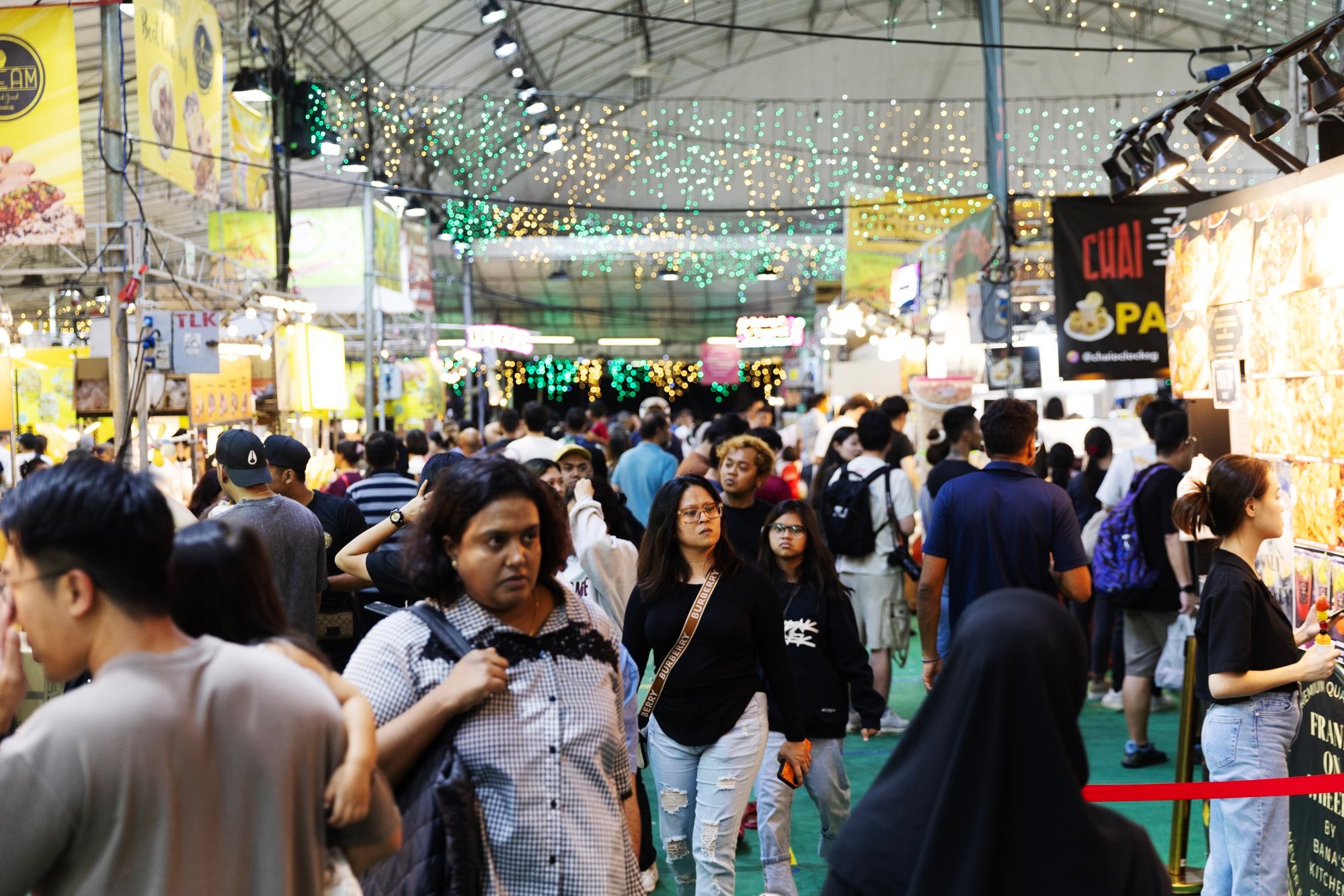
Feedback loop
Experts say social media platforms have become “breeding grounds for radical ideologies” because they function as echo chambers and algorithms also create “a feedback loop of radicalisation”.
Noor Huda said: “Social media and online platforms played a crucial role by creating echo chambers where the boy was repeatedly exposed to extremist content that reinforced his emerging beliefs.
“Algorithms on these platforms often recommend content similar to what the user has previously engaged with, which can create a feedback loop of radicalisation.”
But it was likely that security agencies in Singapore were already alert to this possibility, SJKGeostrategic Advisory’s Jayakumar said.
“It is clear from statements from government officials that the Singapore authorities are worried that the steady diet of news – including killings of unarmed civilians – has the potential not just to inflame opinion in Singapore, but to radicalise individuals.”
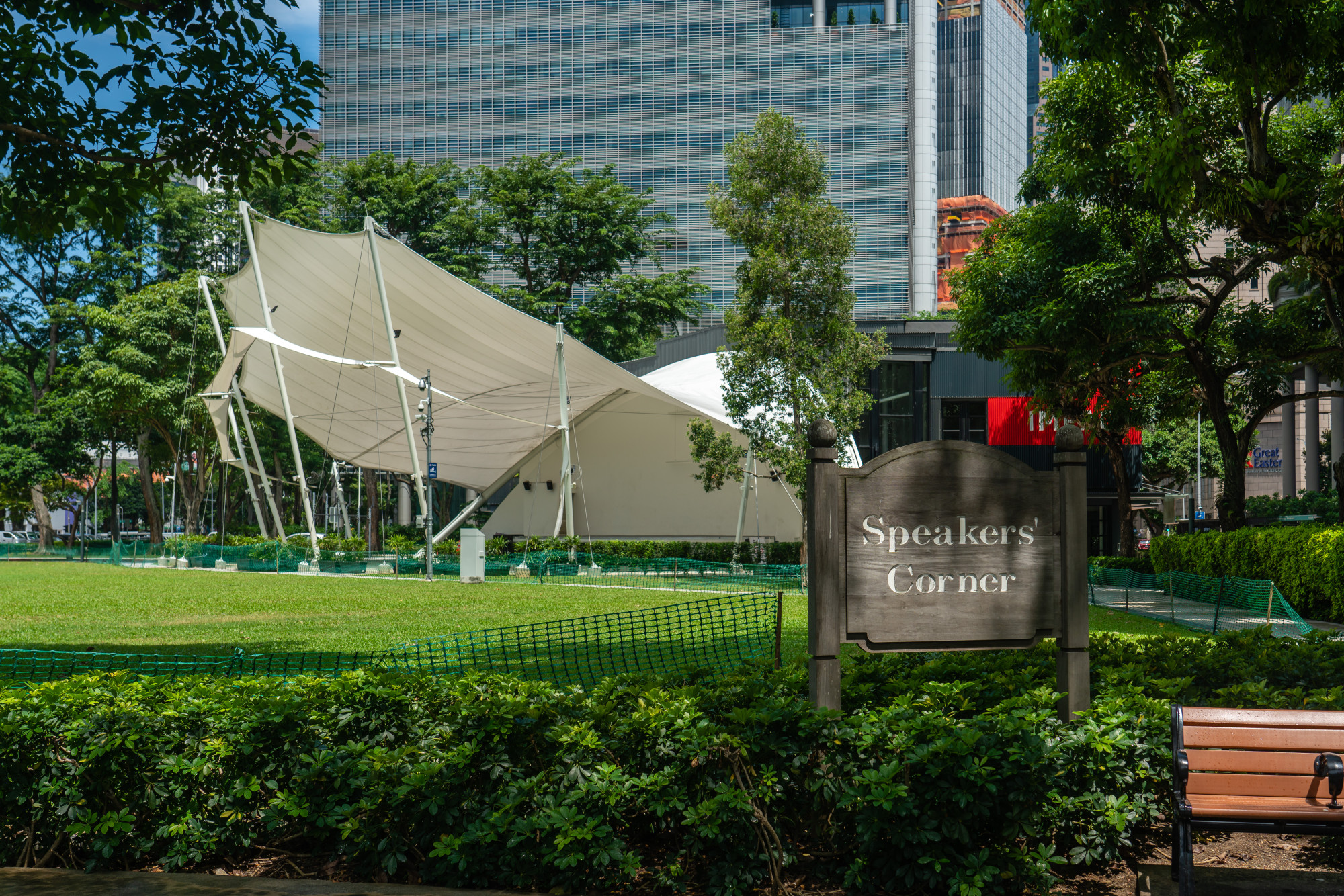
In March, the Singapore government ordered the Israeli embassy to remove a social media post that contained claims comparing mentions of Israel and Palestine in the Koran, marking the first time a foreign mission was told to remove a social media post.
The authorities in October banned public events related to the war, including at the country’s sole free speech zone, citing public safety and security concerns. They also issued an advisory warning against wearing symbols linked to the war.
The youngest person previously to have been detained under the ISA was a then 15-year-old boy, in December 2022. He was a self-radicalised supporter of al-Qaeda and Islamic State in Iraq and Syria.
Israel is one of Singapore’s oldest military partners. Following the city state’s acrimonious split from Malaysia in 1965, Israel provided the fledgling country with state help to build its military, a task turned down by bigger powers including India and Egypt.
After 54 years of diplomatic ties, Singapore in December presented to Israeli President Isaac Herzog its first resident ambassador to Israel. The city state has an embassy in Tel Aviv and an office in Ramallah to coordinate help to the Palestinian Authority that governs the West Bank.

